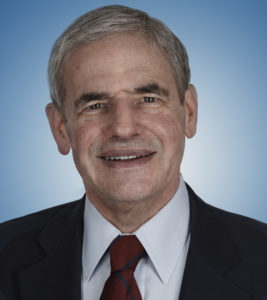Consider a vision — a free, peaceful, and prosperous South Africa. Economic freedom is the foundation for achieving this vision. Free trade is vital to the foundation and will stimulate further economic freedom.
While freedom is indivisible, economic freedom is key. As I recently wrote, “Economic freedom, combined with a culture of capitalism, leads to prosperity, greater individual opportunity, better health, cultural evolution and enrichment, and improved stewardship of the environment. It also promotes civil liberties, political freedom, and peace.”
Significance of Free Trade
Economic freedom is itself indivisible. Why is one element, free trade, so important? Consider the observations of nineteenth-century French economist Frédéric Bastiat.
First, Bastiat saw that free trade is essential to economic freedom. “[T]rade is intrinsic to property and … to restrict the one is to shake the foundations of the other.”
Second, he knew that free trade fosters peace. He understood that it could lead to the “extinction of hatred, prejudices between one people and another, and the wars that come in their wake.”
Finally, Bastiat recognized that free trade is a moral issue. Protection is a form of “legal plunder,” transferring wealth from consumers to protected industries.
Trade, the exchange of goods and services, benefits both buyers and sellers. Trade leads to the creation of wealth and allows for the division and specialization of labor. The benefits are the same whether transactions occur within a country or between people in different countries. The existence of borders — artificial lines drawn by states — has no bearing on the economic principles.
The freedom of foreigners to invest, to own land, and to control businesses is within the sphere of free trade. Again, people engaged in voluntary arrangements benefit regardless of borders.
Effect of Trade Barriers
When states impose trade barriers, they prevent, limit, or burden mutually beneficial transactions. The public loses the benefits that flow from open trade. As economist Donald J. Boudreaux has explained, these include “access to higher-quality, lower-priced goods,” “more growth,” “improve[d] efficiency and innovation,” and greater competitiveness. International trade also allows for cultural enrichment and evolution.
The public tends to misunderstand foreign trade. Economist Bryan Caplan attributes the irrational prejudice toward trade as well as immigration to “anti-foreign bias,” “a tendency to underestimate the economic benefits of interaction with foreigners.”
Politicians encourage and exploit this bias, gaining political support for restricting trade. The restrictions harm the public while protecting special interests from competition.
Expansion of Economic Freedom
As economist Gerald P. O’Driscoll, now with the Cato Institute, has explained, “Trade helps drive other reforms.”
Open markets quickly uncover domestic economic policy failures. Firms open to global competition cannot bear the burdens of high tax rates, burdensome regulations, and general government interference in the economy. Official corruption is a tax on economic activity and a depressant on growth. As a result, the government implements reforms that bring prosperity.
Ranking of South Africa
The “Economic Freedom of the World: 2015 Annual Report” ranks South Africa 88th of 157 countries and territories analyzed in the category Freedom to Trade Internationally. It ranks South Africa lower in overall economic freedom, 96th.
The Human Freedom Index measures personal as well as economic freedom. It ranks South Africa at 70th of 152 jurisdictions in the 2015 report.
The rankings reflect the opportunity for improvement. Achieving trade freedom will lead to the enhancement of overall freedom.
Unilateral Removal of Barriers
Unilateral removal of trade barriers is the best approach. True freedom of trade requires no agreements. It just requires a government tearing down its own protectionist walls.
Regional free-trade zones are not the answer. South Africa should open its market to the whole world while setting an example for the continent.
Free trade is the morally and economically sound policy. Unilateral action provides the best path.
Conclusion
Free trade is important, but more significant, as Bastiat argued, is “the spirit of free trade,” “a reform of the mind itself.”
South Africa needs a revolution, a revolution of spirit. The spirit needed is the love of liberty. This spirit leads us to seek freedom from the state, instead of power through the state. The quest for liberty will bring South Africa freedom, peace, and prosperity.
This article originally appeared on the Free Market Foundation of South Africa’s website.




